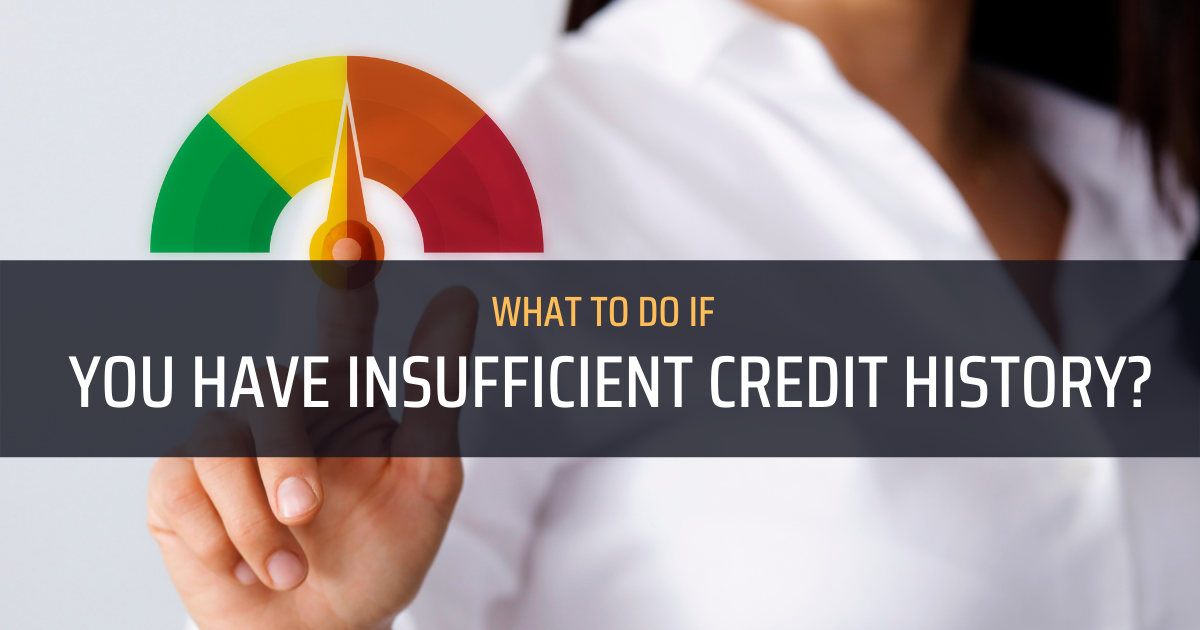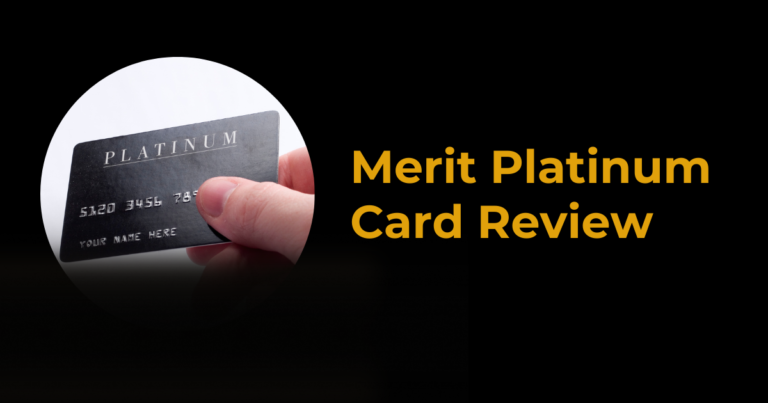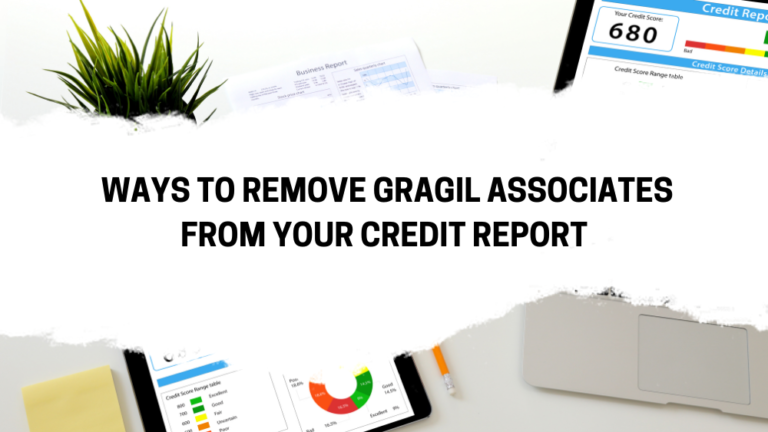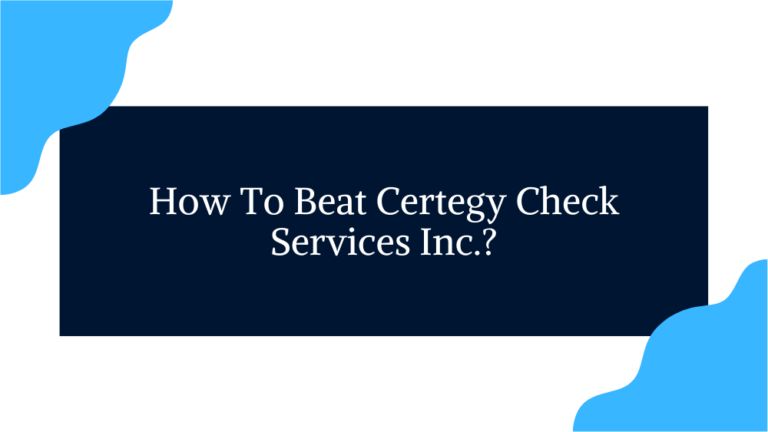What to do if you have insufficient credit history?
Introduction
Insufficient credit history can be responsible for freezing your finances when you choose to apply for a loan or a credit card. In this article, we will dive deep into what it is and share tips on how to fix insufficient credit history and credit scores and more related to it.
What does insufficient credit history mean?
Insufficient credit history refers to the proven track record through which lenders assess how you repay the debts you have taken. It is the main tool to evaluate the information about your payment history and how you have handled the bills. If you have an insufficient credit history, you might be denied credit. It is because the lenders have a hard time assessing how risky a borrower you are.
You might be applying for a personal loan, a line of credit, rental property, or a student loan. You must have a credit score to determine what kind of borrower you are. Some of the parties that can access your credit history report are mortgage lenders, auto loan lenders, banks and financial institutions, insurance companies, landlords, and employers.
Why does insufficient credit history occur?
Not enough credit history is usually caused by an event beyond your control. It could be as simple as closing accounts incorrectly or as difficult as job loss or identity theft. Following are the reasons why you might have an insufficient credit history:
- Forgetting to close an account.
- Identity theft or job loss.
- Other factors such as filing for bankruptcy, divorce, medical emergency, identity theft, late payments on a mortgage, short sale, late payments on a car loan, delinquent student loans, charge-offs, and collections accounts.
Ways to improve your insufficient credit history:
Start by getting a card.
Credit cards are easier to get than loans and are an excellent way to build a credit history. Having no credit card will make the credit card companies reluctant to lend you money. Applying for a credit card is the easiest way to build your credit score. You can apply for an unsecured and secured credit card. But it is better to get an unsecured card than a secured credit card.
Individuals with no credit card history cannot avail of an unsecured card. However, people with stable earnings can try applying for an unsecured credit card to build their credit score. Then you can move on to a secured card without trouble. So people with stable earnings qualify for an unsecured card. But go for a credit card that does not have an annual fee.
Choose a secured credit card instead of an unsecured card.
If you do not have a credit, you do not have a credit history, your creditors would find it difficult to approve you for loans. Secure credit cards at this time come to your rescue. Unsecured cards allow you to build credit without a deposit, while secured cards require a deposit. With an unsecured card, you can start making your credit history.
Your insufficient credit history may not help you qualify for an unsecured credit card. Therefore, it is good if you opt for a secured credit card. A secured card is a card that needs a deposit as collateral. The deposit is the credit limit you get after depositing the cash. This limits the amount of money you spend. And it provides people having limited credit histories or damaged credit histories with a chance to qualify for a line of credit.
Acquiring a secured card and paying the monthly bills on time can help you build your credit history. Sometimes, you might have a good credit score but not enough credit history. You can create it by making small purchases and paying them regularly, and you might automatically graduate to traditional cards. But do not apply for a card with many charges such as application fees, annual fees, and maintenance fees. It is because you can find cards designed for individuals with a limited credit history, which might also come with some rewards. So it is important to get a hold of those types of cards.
Avoid credit card with high limit
It is recommended not to get a credit card with a high limit if you can’t handle it. In addition, do not spend more than you can afford to pay back. If you get a card with a high credit limit and can’t pay it back, it can hurt your credit score.
Steer clear of cards that offer reward in exchange for paying an annual fee
Credit card rewards are excellent, but they are not worth paying an annual fee. A good rule of thumb is never to pay more than $100/year in annual fees. In addition, if you don’t pay off your balance every month, you will pay more in interest than you will earn in rewards. And not paying off the bill in time might affect your credit score.
Pay your balance off in full every month, if possible.
Credit cards are a form of a loan. If you pay off the balance in full every month, you will benefit. The most excellent benefit you will enjoy is earning credit card rewards and getting your interests avoided.
Paying off in full every month will help you boost your credit score by lowering your credit utilization ratio. If you can prove that you are responsible enough to handle your credit responsibly, they might raise your credit limit. Even if you do not carry a balance in your account, you will get a credit score for free.
Your credit history depends on time paying your bills and keeping your balance below 30% of the credit limits, while 10% is ideal for credit building. If you choose to carry a balance, keep it low, as carrying a balance can also increase the credit utilization ratio. An increase in the utilization ratio can decrease your credit score. It can also be an indicator that you are experiencing financial difficulty.
Never miss payment, and pay on time.
Pay your credit card bills on time because 35 percent and 40 percent of your credit score are calculated based on your payment history. Paying your bills on time helps build a good credit score and good credit history. The lender who extends your credit expects you to pay off the debt regularly and at least the minimum amount due. If you pay your bills late, it might negatively affect your future credit score.
Don’t close your card after its paid off
It is recommended not to close your credit card after paying the debt off. If you pay off the debt, it improves your credit scores but closing it entirely will cause your credit scores to dip, but temporarily. This is because you lose the credit account’s available credit limit when you close your account. Closing a card will reduce your total credit limit and increase your utilization ratio. In addition, the remaining balance on your account will account for a higher percentage of the total available credit. And it hurts your credit score. Note that the longer your credit history, the better.
Keep your utilization ratio low
The utilization ratio is the percentage of the available credit you use each month. It can be calculated by dividing your total credit card debt by your total credit limit. The better your utilization ratio, the better your credit score will be. Therefore, try to keep your utilization ratio below 30%.
Go for a mini loan
Try to take a personal loan, even a mini loan if possible. Some lenders might not examine the absence of insufficient credit history and provide you with a personal loan. Your personal loan is not secured by collateral, the one which you find in installment loans like a mortgage or a car loan.
Note that if you lack your credit history and score, you might need to pay a higher interest rate to borrow the money. But look around for the lenders who you find the best interest rate. Some experts recommend not using the money. Instead, pay off the debt every month utilizing the loan until your debt is erased. Paying off the debt responsibly will be reflected on your credit history, and it will be marked as “good credit.” But it is also recommended not to wipe out the debt early as it might let you get penalized for an early payoff.
Check if lender has your correct personal information
Your credit report includes the information used to identify you, such as your date of birth, address, phone number, etc., besides having information about your credit history. Therefore, inaccurate information on your credit report might help you detect fraud.
How to get a credit card with insufficient history?
Let us check the process how to get a credit card with insufficient history:
Talk to your bank
If you have insufficient credit experience or history, visit the bank you have your checking account with and ask them the listed questions:
- Inquire about their credit card options.
- Understand their requirements for approval.
- Know the interest rates and fees.
- Ask about options for improving your credit score.
- Ask about options for building credit.
After acquiring all the information, proceed to get a credit card with insufficient history.
Get a secured card
You will need to open a savings account and deposit money into the account to get a secured card. Then, the bank will issue a credit card with a credit limit equal to the amount you have deposited. The bank holds the deposit as collateral. You will require no annual fee for the card, and the card can be used like any other credit card.
Become an authorized user to add credit history
Having an insufficient credit file, it might be challenging for you to get approved for loans or credit cards. If you choose to become an authorized user on a card that has been open for a long time can help you build credit without involving applying for your own credit card. Instead, find a cardholder who wants to add you to their account as an authorized user and that the cardholder must have a good credit score. In the end, only a good credit score is important for getting a credit card.
You will be added to the primary cardholder’s card as an authorized user, and you will be able to get your own credit card through which you can make purchases (this requires the account owner’s agreement). In addition, the primary cardholder’s card account and his payment history will appear on your credit report, which will help you build a good credit history and credit score.
But before you choose to ask the cardholder to add you as an authorized user, consider some important points, such as ensuring that the lender reports authorized-user accounts to the credit bureaus. If you find that payments are not reported, being an authorized user might not do much good. Besides, you need to go for those cardholders who have an excellent payment history and keep their balance low.
Have someone cosign on credit card
Find a friend or relative with a positive credit rating to cosign or open credit with you. The person who cosigns is responsible for paying the bill if you don’t. And your credit history will be included in the co-signer’s credit report. It can be a good option if you have a poor credit history. It is because you are equally liable for the account and share ownership with it. Also, if you break the promise of fulfilling the payment, the credit can pursue both of you for payment.
Get a student credit card
Find a card that offers rewards for good grades because it is an excellent way to build your credit history, and it will help you get approved for loans in the future. Students with little to no credit history are usually approved for a student credit card.
Difference between no credit history and poor credit history
No credit history
No credit history is an indicator that the applicant does not have any experience with credit in the past, and it does not allow the lenders to assess their payment process. With good credit history, a loan applicant can quickly build trust. You can create your credit history by getting a credit card. After that, you can take a mini loan like a personal loan or other loans like car loans or mortgages. If you do not pay your loan debt on time, you might affect your credit score. If you are a student, you can apply for a student credit card and get a student loan. Paying off your loan on time will help you build a good credit score and a good credit history over time.
Poor credit history
A score below 580 is considered a poor credit score. When you take a loan like personal loans or car loans, or mortgages and do not pay the minimum amount every month or make late payments, or if you default on a loan, or if you have excessive debt or bankruptcy, your credit score might be affected along with the credit history.
If you have a score less than 580, then you have a poor credit score. Borrowers with lower scores are identified as riskier borrowers to the lenders.
Having no credit history is better than having a poor one.
Having no credit is better than bad credit. You have measures to build your credit history, starting from applying for an unsecured credit card if you have a stable income. You can also improve it by taking loans and paying them on time.
Even if you have bad credit, it can be fixed, but having a bad credit report on your credit card might make it challenging to get you a loan, find a place to live, or even get a job. Listed are the ways to improve your bad credit:
- Pay bills on time: Your credit scores will drag down if you miss your payments. You can start by taking affordable expenses such as a monthly subscription and paying it on time. Paying off your debts on time can help you improve your credit score.
- Keep your balance low: The credit utilization rate must be below 30% of your credit limit. The ideal percentage is 10%. Keeping the balance low is an essential factor in improving your credit score.
- Pay off unsettled collection accounts: Indeed, you cannot remove the evidence of having a collection account from your credit report, but you can choose to pay it off. Delete it to show that you have paid in full.
How long does it take to overcome insufficient credit history?
The length of time it takes to overcome insufficient credit history depends on the severity of the negative event or events and how long they played a role in your credit history.
- It depends on how severe the negative event was.
- Duration also depends on how long it played a part in your credit history.
- It depends on the extent of the damage to your credit history.
To correct insufficient credit history, you should first look into the damage caused by the negative event or events, then take steps to repair your credit. You can follow the listed steps:
- Check your credit report for errors and report them.
- Make sure your credit report has all your positive credit history.
- Dispute and fix errors on your credit report.
- Make payments on all your accounts to improve your credit score.
If a negative event plays a small part in your overall credit history, you may be able to overcome insufficient credit history in as little as six months. But it depends on the severity of the negative event and the length of time the negative event played a role in your credit history. Therefore, the time it takes to overcome your insufficient credit history will vary based on these situations.
Conclusion
Insufficient credit history might be better than bad credit history. But you must consider taking it into account because, with an insufficient credit history, your lenders might be reluctant to provide you a loan. They might see you as a risky borrower as they would not know how you clear your payments with sufficient credit history. So is because credit history is the tool to assess how you clear your debts.






